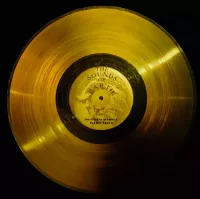Euphoria is an intense feeling of pleasure, excitement, well-being, and happiness. It can be triggered by natural rewards like exercise, laughter, music, and dancing, as well as social activities. In some instances, euphoria can be a symptom of neurological or neuropsychiatric disorders such as mania, or is linked to romantic love and human sexual response. Notably, certain addictive drugs can induce euphoria, which contributes to their recreational use and potential for abuse. It's a complex state linked to both positive and potentially harmful stimuli.
1903: Euphoria described as "pleasant excitement"
In 1903, euphoria was described in The Boston Daily Globe as "pleasant excitement" and "the sense of ease and well-being."
1920: Euphoria described as "feeling fit" in Popular Science magazine
In 1920, Popular Science magazine described euphoria as "a high sounding name" meaning "feeling fit", normally making life worth living, motivating drug use, and ill formed in certain mental illnesses.
1921: Euphoria described as an organic state opposite to fatigue
In 1921, Robert S. Woodworth's textbook Psychology: A study of mental life describes euphoria as an organic state which is the opposite of fatigue, and "means about the same as feeling good."
1940: Definition of Euphoria in The Journal of Psychology
In 1940, The Journal of Psychology defined euphoria as a "state of general well being ... and pleasantly toned feeling."
1957: British pharmacologist D.A. Cahal's view on opioid euphoria
In 1957, British pharmacologist D. A. Cahal did not regard opioid euphoria as medically undesirable but an effect which "enhance[s] the value of a major analgesic."
1977: Euphoria described as a mood of contentment
In 1977, the edition of A Concise Encyclopaedia of Psychiatry called euphoria "a mood of contentment and well-being," with pathologic associations when used in a psychiatric context.
January 2019: Clinical study on dopamine's effect on pleasure from music
In January 2019, a clinical study assessed the effect of a dopamine precursor (levodopa), dopamine antagonist (risperidone), and a placebo on reward responses to music, finding that dopamine neurotransmission bidirectionally regulates pleasure cognition in human subjects.
Trending
40 minutes ago Kyle Anderson's Injury Status: Won't Play Friday, Doubtful Monday, Iffy Wednesday

41 minutes ago Sheppard Urges Terrion Arnold: Focus on Playing, Reduce Talk; Improvement Needed
41 minutes ago Sonny Styles impresses NFL teams: Interview with Panthers and Giants interest.

24 hours ago Governor Whitmer's final State of the State address focuses on Michigan's future.

2 hours ago David Bailey shines as top defensive prospect at NFL Combine, impressing scouts.

2 hours ago Mamdani and Trump Discuss Housing at White House Meeting; Pitches Investments
Popular

Jesse Jackson is an American civil rights activist politician and...

Susan Rice is an American diplomat and public official prominent...

Barack Obama the th U S President - was the...

XXXTentacion born Jahseh Dwayne Ricardo Onfroy was a controversial yet...

Michael Joseph Jackson the King of Pop was a highly...

Kashyap Pramod Patel is an American lawyer who became the...


